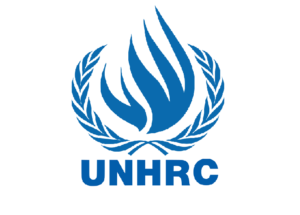 by High Commissioner for Human Rights, Geneva, January 25, 2018
by High Commissioner for Human Rights, Geneva, January 25, 2018
OHCHR Report on Sri Lanka 25 Jan 2018
Human Rights Council
Thirty-seventh session
26 February–23 March 2018
Agenda item 2
Annual report of the United Nations High Commissioner
for Human Rights and reports of the Office of the
High Commissioner and the Secretary-General
Promoting reconciliation, accountability and human rights in
Sri Lanka
Report of the Office of the United Nations High Commissioner for
Human Rights
Summary
Pursuant to Human Rights Council resolution 34/1, the present document is an
update on progress made in the implementation of resolution 30/1 on promoting
reconciliation, accountability and human rights in Sri Lanka during the period from March
2017 to January 2018, in particular with regard to the Government’s commitment to put in
place transitional justice measures. In the present update, the Office of the United Nations
High Commissioner for Human Rights also looks at the general human rights situation in
the country, including with respect to accountability.
Contents
Page
I. Introduction………………………………………………………………………………………………………………….. 3
II. Engagement of the Office of the United Nations High Commissioner for Human Rights and
United Nations human rights mechanisms………………………………………………………………………… 3
III. Developments in reconciliation and accountability…………………………………………………………….. 4
A. Overall developments in transitional justice ………………………………………………………………. 4
B. Preconditions for transitional justice and confidence-building measures……………………….. 6
C. Emblematic cases…………………………………………………………………………………………………… 7
IV. Other human rights issues ………………………………………………………………………………………………. 8
V. Conclusions and recommendations………………………………………………………………………………….. 9
I. Introduction
…
3. In the present report OHCHR reviews progress made by the Government of Sri
Lanka during the period from March 2017 to January 2018 on the implementation of
resolutions 30/1 and 34/1, in particular regarding the comprehensive recommendations on
the judicial and non-judicial measures necessary to advance accountability and
reconciliation, and on strengthening the protection of human rights, democracy and the rule
of law. The update is based on public information and insights obtained by OHCHR from
various governmental and non-governmental stakeholders.
…
V. Conclusions and recommendations
48. The High Commissioner reiterates his appreciation for the constructive
engagement of the Government of Sri Lanka with OHCHR and United Nations
human rights mechanisms since January 2015. However, as he noted in March 2017,
this constructive collaboration must be accompanied by the implementation of key
commitments. The fulfilment of the transitional justice commitments made under
Human Rights Council resolution 30/1 has been virtually stalled for more than a year.
Progress with some confidence-building measures has often been insufficient and
inconclusive, and the structures set up to coordinate implementation have not
consolidated enough or did not receive sufficient political support to move things
forward.
49. In statements and reports issued since 2015, the High Commissioner, while
expressing concern over the lack of progress on accountability and reforms, was
encouraged by the positive improvement of the general human rights situation.
However, 2017 was marked by intermittent inter-ethnic tensions and attacks on
minorities which are unlikely to dissipate completely.
50. While the Government has managed to steer many of these worrying events in
a positive direction, this type of violence in a country that has experienced cycles of
extreme violence roughly every 10 years is deeply troubling, particularly when
accompanied by hate speech, misinformation and agitation through social media and
political manipulation.
51. The continuing allegations of torture and surveillance and the lack of sufficient
progress in implementing critical confidence-building measures, such as the release of
land, the repeal of the Prevention of Terrorism Act and the solution to the pending
cases under the Act, have antagonized key constituencies that could be instrumental to
the Government’s reform efforts.
52. The High Commissioner urges the Human Rights Council to continue to play a
critical role in encouraging progress in accountability and reconciliation in Sri Lanka.
It also calls on Member States to explore other avenues, including the application of
universal jurisdiction, that could foster accountability.